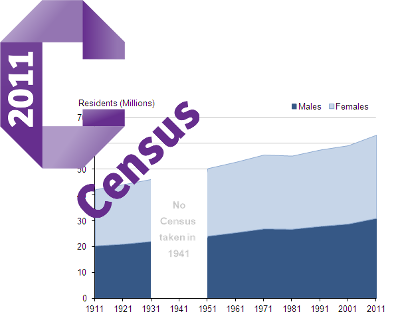Longtime readers of this blog will recall that I have previously written about the census in some detail. And if you’ve been about the last day or so, you’ll have seen the fuss over the news that the Office of National Statistics might make declaring your sex optional in the 2021 census.
The full details are not known as the Sunday Times story is from a leaked report and contains few details. This did not stop the Times breathlessly rushing to get quotes from two well-known anti-trans “feminists”. It seemed no trans people were asked for quotes.
The misreporting around this issue is even more widespread than usual for trans-related stories. Misreporting caused by concerns that facts will get in the way of a good headline that further demonises trans people. So here are some myths already doing the rounds, debunked.
Myth: Gender will no longer be recorded in the census, or we will have inaccurate data on gender
There are many forms in existence in which make gender optional, and most people still tick the appropriate option. Religion is a far more sensitive issue and even when the question was made optional in the 2011 census, only 7% of people chose not to provide an answer.
And the Office for National Statistics are likely to use “imputation” to fill in the gaps – a system they routinely use and causes problems analysing statistics for minority communities, such as trans people and poly households. In a nutshell, if you put your name as Mary and don’t tick “Female”, the ONS may still record you as female in statistics.
Myth: This will erase women’s identity
Tick the box, or don’t tick the box. Your choice, nobody else’s. Established religion has not disappeared since the question was made optional in 2011.
Myth: Trans people and only trans people will not answer the question, which is why it’s optional
Most trans people identify more strongly with one gender than the other, and are likely to simply tick the box they most closely identify with. The groups most likely to skip this question are, roughly in order of likelihood:
- Those who think it is “none of your damn business”. (A view that’s been held by some feminists quite separate from trans concerns for some time)
- Respondents who didn’t understand the question, perhaps because of language issues
- People who simply couldn’t be bothered.
- Non-binary people
I predict that we will see some attempts to extrapolate the non-binary population of the UK based on 2021 data. I doubt such extrapolations will be valid.
Did the Office for National Statistics get this right?
In a word, no. At least, it doesn’t look like they have but it is hard to say until the final report is published – it may be that there has been selective quoting from the report in the original article (£) and the ONS considered other factors more important. In particular, I find it a little over the top for a government report to state that asking about sex rather than gender is reallys “unacceptable”. But that may have been one side point in a longer article, or reporting the views of a focus group.
And “Other” was rejected because it was “thought to homogenise trans people and differentiate them from the rest of society“. That statement suggests that whoever wrote the ONS report has a tentative grasp of trans issues at best, as it is only true if you start from the assumption that all or most trans people will tick “other”. Liberal Democrat Conference speakers cards have an “Other/Prefer Not To Say” option on them for gender for over a year, and we have not had any complaints about that. If we were going to get complaints about getting an equality issue wrong, that’s precisely the environment in which I would expect them to surface.
And finally, there seems to be some conflation in the quotes between non-binary and intersex issues. It is unclear why the ONS has lumped intersex people in with non-binary people in this way, as they are overlapping but still distinct groups in much the same way as being Irish and having red hair are.


 I’ve seen a few people around the place wonder why the census does not ask about sexuality or transgender status. I, for one, am glad it does not. You’re probably all aware of the
I’ve seen a few people around the place wonder why the census does not ask about sexuality or transgender status. I, for one, am glad it does not. You’re probably all aware of the